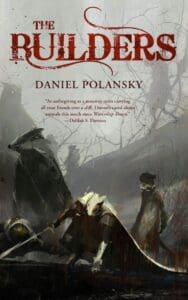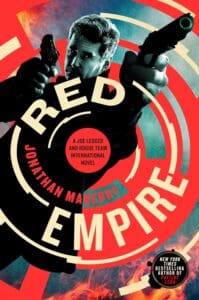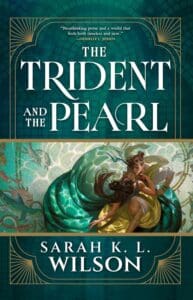Synopsis:
Marshall is still trying to put the pieces together after the death of her husband. After she is involved in a terrible accident, her editor sends her to the small, backwards town of Raeford to investigate a clearly ridiculous rumor: that a horse has given birth to a healthy, human baby boy.
When Marshall arrives in Raeford, she finds an insular town that is kinder to the horses they are famous for breeding than to their own people. But when two horribly mangled bodies are discovered in a field—one a horse, one a human—she realizes that there might be a real story here.
As she’s pulled deeper into the town and its guarded people, her sense of reality is tipped on its head. Is she losing her grip? Or is this impossible story the key to a dark secret that has haunted the women of Raeford for generations?
Review:
When Marshall, our protagonist, arrives in Raeford, it has all the markings of a classic gothic horror, with unfriendly townsfolk guarding dark secrets. The fact that Marshall is there to investigate a tabloid headline of a story about a horse giving birth to a human child kind of undercuts the vibe a bit, but not much. We know what we’re in for. A slow uncovering of a mystery, as we dig into the folk horror that lives at the heart of this rural community.
I’m happy to say, that The Unmothers doesn’t really work that way at all. Instead, after getting the runaround from a few townspeople, Marshall talks to a couple of teenagers, and she gets the whole story, or legend, or whatever it is. This kind of fakeout, this holding up of the mystery structure only to yank it away again, is part and parcel of the way the novel works, sometimes to its benefit, sometimes not. It is, at its heart, a book that plays with your expectations in clever ways.
What we really get is a portrait of small town America in all its gritty reality: small time gangsters, teen pregnancy, and the omnipresent reality of drug addiction. In this way, Marshall is a perfect lens through which to view the story. She brings the journalistic eye to this unique (but also stereotypical) little town.
Unfortunately, this method is hampered by ever revolving POVs and Marshall’s own backstory, which seems a little too pat, a little too made to order. The idea that a protagonist requires some “Big Trauma” that informs the way they experience the story seems to me not only overused but unnecessary. Marshall would have been a perfect proxy for the reader due to her cynical outsider status and her journalistic curiosity, and that would have been enough.
Without giving anything away, the folk horror aspect of The Unmothers is creepy and effective, and also provides some of the most lyrically beautiful passages in a book of solid prose.
But in the end, I was left wondering what it all added up to.
There’s an insistence throughout that the force in the woods (or perhaps one man’s attempt to take control of that force) has something to do with reproductive rights and bodily autonomy, but there’s no reasonable way to make any such a connection in any logical way. There is simply no one-to-one connection to be made here based on the ideas laid out within the novel. And I’m perfectly happy with that lack of connection. I don’t need reason and logic in my folk horror story thank you very much. But there seems to be an insistence from outside the world of the novel that there is a deeper meaning, that this narrative conflict has greater political ramifications, and I just wasn’t buying it.
In the end, I found The Unmothers to be incredibly enjoyable, remarkably well-written at the level of its prose, and jam packed with brilliant moments. Anderson knows how to do a wide cast of characters, and that serves the story well, and her undeniable knowledge of all things horse-related is delivered in a way that is fascinating and never overwhelming.
But it might be attempting to do too much with an already full plate. By trying to make Marshall’s story match up so neatly with whatever is happening in Raeford, and by trying to make what’s happening mean more than it does, the novel loses some of its undeniable power.








Leave a Reply